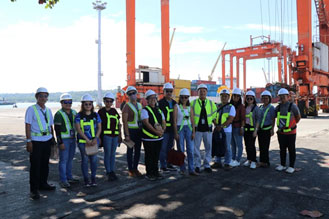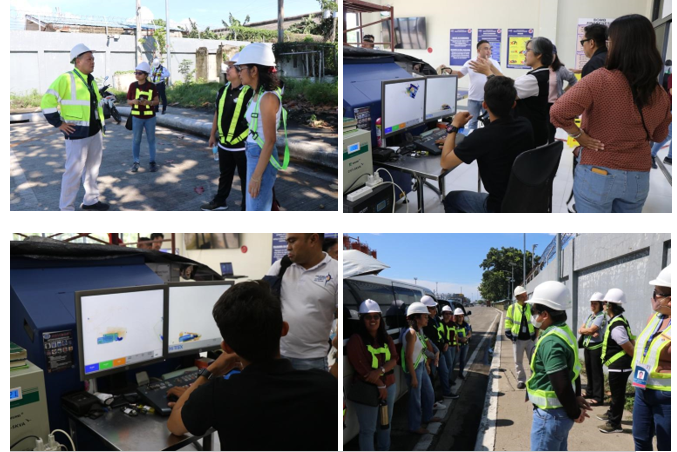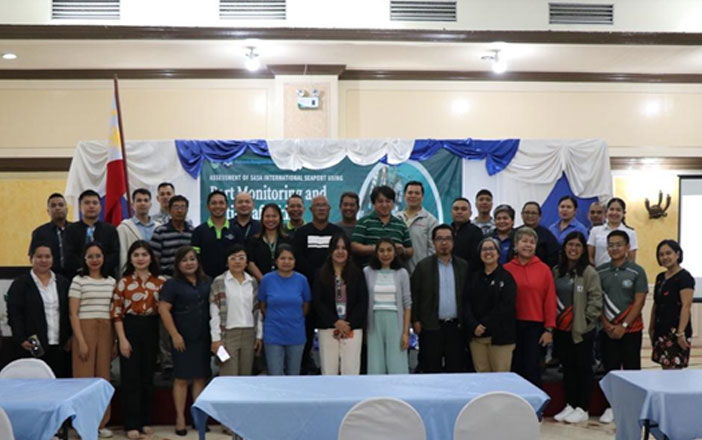DENR-Biodiversity Management Bureau (BMB) in partnership with Tanggol Kalikasan (TK) conducted the Port Assessment cum Capacity Building for Sasa International Seaport from September 20 to 22, 2023 at Apo View Hotel, Davao City. This activity is a part of TK’s programmatic approach on supporting Environmental Law Enforcement.
The said port assessment was participated by government agencies led by DENR Region 11 and other partner government agencies of the region. Partner agencies who attended included the Bureau of Customs (BOC), Bureau of Fisheries and Aquatic Resources (BFAR), Philippine Ports Authority (PPA), Philippine Coast Guard (PCG), Philippine National Police-Maritime Group (PNP-MG), Bureau of Animal Industry (BAI), and Bureau of Plant Industry (BPI). Philippine Span Asia Carrier Corporation and Fujitrans Logistics Philippines were also in attendance as representatives from the private industry.
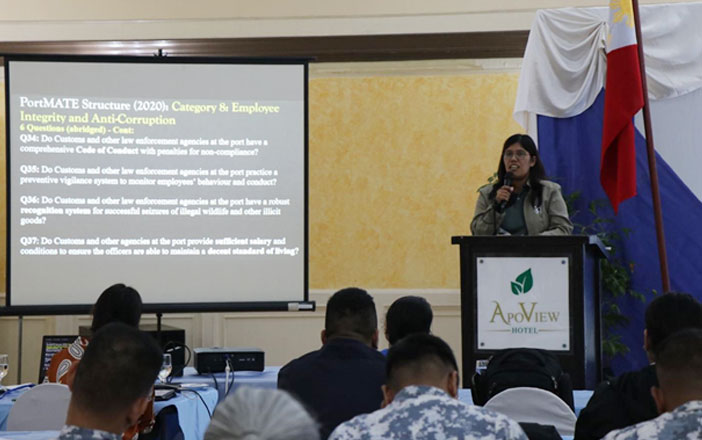
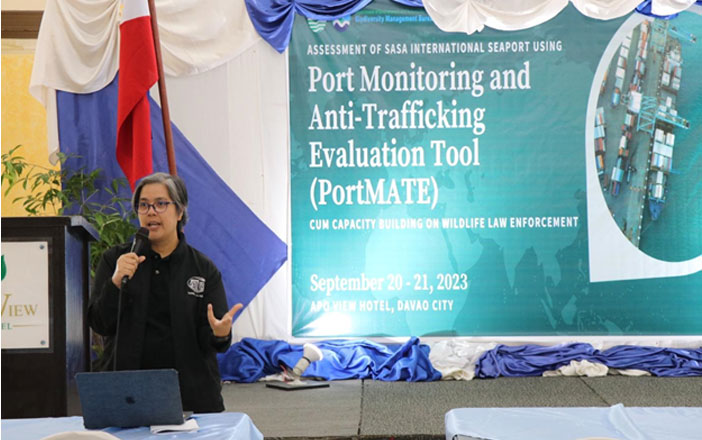
The port assessment aims to:
- Determine the readiness of Sasa International Seaport, including the government agencies stationed or has jurisdiction over the area, and to monitor and track wildlife trafficking;
- Jointly identify ways and approaches to enhance the capacity of Sasa International Seaport to address wildlife trafficking; and
- Provide recommendations to fill in the gaps as to the port and capacity of the agencies within to prevent wildlife trafficking.
TK used the Port Monitoring and Anti-Trafficking Evaluation (PortMATE) tool to facilitate the assessment. PortMATE is a complex framework that provides express assessment of an entry or exit point that aims to prevent, detect, and even intercept wildlife and other illicit trafficking. As an assessment tool, PortMATE with fifty-two (52) questions (rating from 0-3 points) provides a standardized assessment baseline for the identification of key gaps at the port level, prioritization of interventions, and development of recommendations which are evidence-based. These questions are divided into nine categories, namely:
- Category 1: Electronic Customs Declaration System (Electronic Permitting System for Domestic Port);
- Category 2: Intelligence;
- Category 3: Risk Profiling System;
- Category 4: Container/Cargo/Passenger Scanning;
- Category 5: Container/Cargo/Baggage Inspection;
- Category 6: Investigation and Prosecution;
- Category 7: Inter-Agency and International Collaboration;
- Category 8: Employee Integrity and Anti-Corruption; and
- Category 9: Supply Chain Security
Specifically, these indicators aimed to determine the readiness of the port, including the government agencies and private sectors operating therein, to monitor and track illegal wildlife trade (IWT) of both terrestrial and aquatic species of flora and fauna, and to identify gaps that would serve as baseline in monitoring the progress over time that would help the law enforcement agencies and private companies in Sasa International Seaport in their plan of actions to effectively combat IWT.
Moving forward, the participants recommended to revisit existing policies containing mandates of each agencies, to strengthen information dissemination in relation to wildlife protection, to develop and facilitate an online system on the ports to be funded by the government, to include budget for the procurement of equipment and salary and to have cargo manifest specify or declare the details of cargo or commodities.
